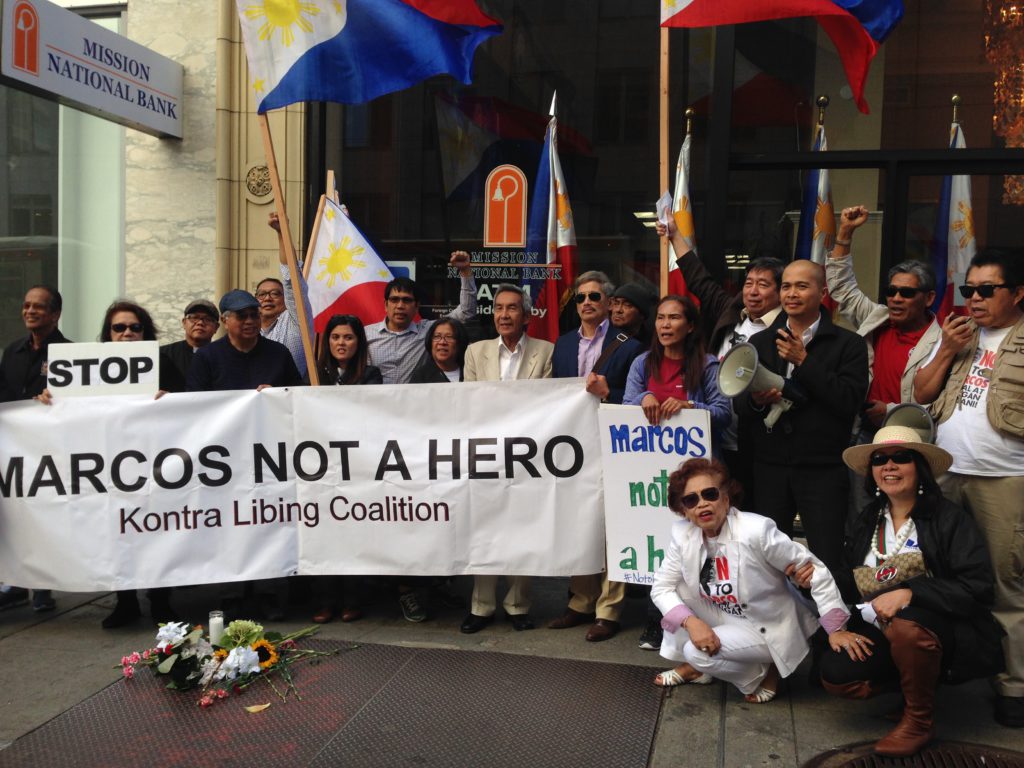IMMIGRANT AND DIASPORA POLITICS
Understanding the Formation of Conservative Attitudes and Beliefs among Filipino Americans (2023-)
In the 2016 U.S. presidential election, roughly two-thirds of Asian Americans voted for Hillary Clinton and 19% voted for Donald Trump. In 2020, support for Trump among Asian Americans increased to 28%, with Filipinos registering the highest amount of support, at 38 percent. In this project I am conducting with Nico Ravanilla and funded by the Russell Sage Foundation Pipeline Grant, we have three objectives: (1) provide a descriptive analysis of Filipino immigrants’ political leanings, highlighting their moderate positions on most issues but tendency to be single-issue voters, (2) explore factors influencing political preference formation, focusing on pre- and post-migration, and (3) estimate the “single-issue favorability premium” among Filipino immigrants – the extent to which they favor candidates espousing policy stances that align with their single-issue concerns, and demonstrate that this premium is more pronounced among conservative-leaning Filipinos. We are employing an exploratory sequential mixed-methods design, where we first conduct the qualitative component (ethnography, life-history interviews, and archival research) to obtain a more comprehensive view of the setting, place, and context of personal experiences and to make sure that instruments, measures, and intervention in the quantitative component (survey experiment) actually fit the participants and site being studied. By addressing these objectives, our study offers valuable insights into the political behavior of Filipinos in the United States. More broadly, our goal is to contribute to the understanding of the political incorporation of immigrants in the United States.
Memories as Resistance: Collective Memory-Making as a Tactic Among Diaspora Activists (2018-2020)
The May 2016 Philippine Presidential election saw overwhelming diaspora support for Rodrigo Duterte. The election had the highest turnout in overseas ballots since the passage of the Philippine Dual Citizenship Act. Since becoming president, Duterte has implemented a war against illegal drugs. In this research, Sharon investigates the strategic use of collective memory of the Marcos dictatorship and its overthrow in campaigns against the policies of Duterte. This tactical repertoire has also facilitated the continuous reimagining of the homeland among Filipino immigrants and subsequent generations. The study looks at how former anti-dictatorship activists in the U.S. and the Netherlands have become “memory entrepreneurs,” who mobilize memories of the past for the subsequent generations of Filipinos abroad, especially the descendants of migrants who have fully assimilated in their countries of settlement. Through content analysis of collective storytelling in published memoirs, blogs, and more recently, social media, Sharon explains how diaspora activists in the U.S. and the Netherlands counter dominant discourses and persistent narratives about Marcos, revive past repertoires of resistance and recast their meaning based on the present, and institutionalize collective memory in material forms and representational practices in an attempt to mobilize a transnational constituency against Duterte. While conducting fieldwork in the Netherlands, Sharon was affiliated with Leiden University College in The Hague.
A Tale of Two Activisms: The Relationship Between Migrants’ Rights and Diaspora Mobilizations (2016-2017)
The central research question of this project asks: How is the collective claims-making of migrants and refugees to achieve economic, political, social rights from their host state connected to their participation in movements for homeland democratization? Findings gathered from interview and archival data suggest that migrants’ rights activism and diaspora mobilization are inextricably linked through movement abeyance structures and integrative processes. First, in times of ebb in homeland conflict, activists turn to the local concerns of the migrant community to sustain oppositional consciousness. Second, through their involvement in diaspora politics, migrants and refugees develop associational life, acquire knowledge of the diverse problems of the communities where they are embedded, and learn the ropes of domestic public policymaking. This study contributes to the debate on transnationalism and assimilation in migration studies, which has recently moved from contradiction to synergy.
Revolution from Afar: Mobilizations for Regime Change and the Making of the Filipino Diaspora in the United States and the Netherlands, 1965-1992 (2012-2016)
My dissertation explains the conditions and mechanisms through which migrants and exiles become involved in political struggles in their homelands. While much is known about why migrants maintain homeland ties, information on how they become engaged in organizations involved in political struggles remains scant. Through a comparative case study of homeland-directed activism among Filipinos in the U.S. and the Netherlands from the period of authoritarian rule (1965-1986) to the early years of democratic transition (1986-1992) in the Philippines, the project analyzed how political structures in both the host and home societies, resources in the migrant communities, and formation of oppositional consciousness interact and influence mobilization. I gathered data from 2012 to 2014 in the Netherlands (Amsterdam, Den Haag, Leiden, Nijmegen, Tilburg, and Utrecht), the Philippines (Manila), and the U.S. (Los Angeles, New York, the San Francisco Bay Area, and Seattle), collecting over 1,000 pages of archival data in Dutch, English, and Filipino and 53 in-depth interviews. In the Netherlands, I was affiliated with the Department of Political Science and Institute for Migration and Ethnic Studies of the University of Amsterdam as a Visiting Researcher.


